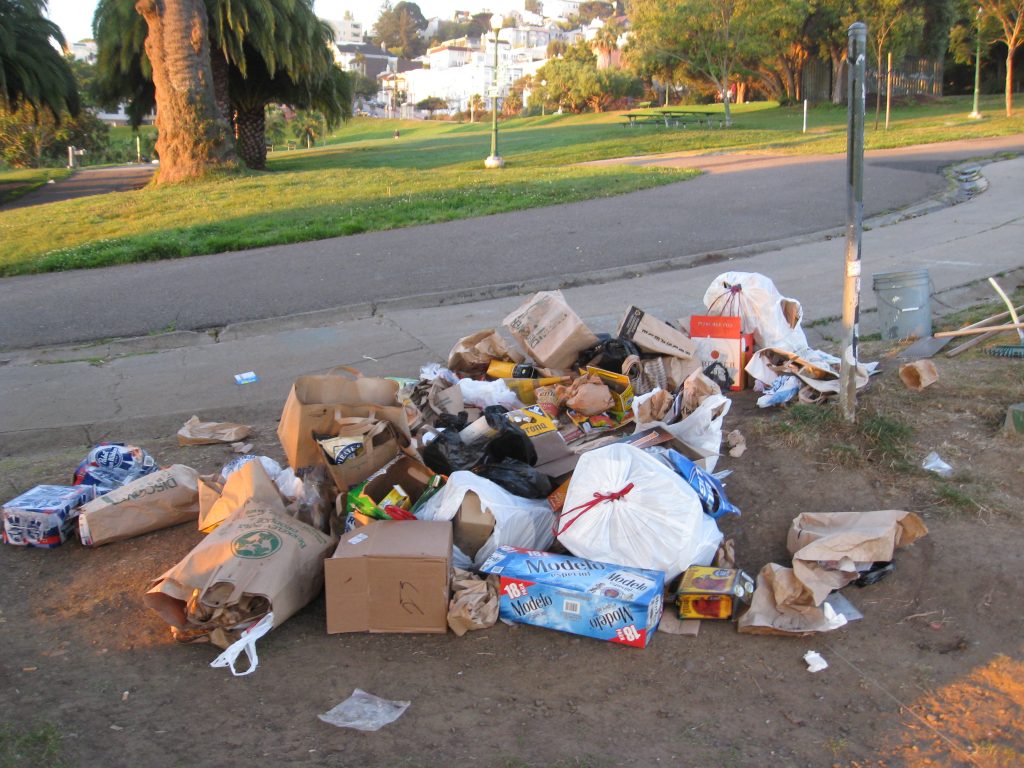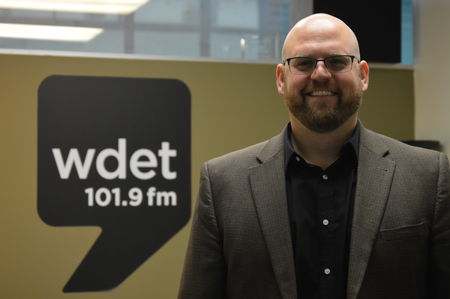Environmental Racism, Blue New Deal And Other 2020 Campaign Terms You Need to Know
Detroit Today’s “Defining 2020” series aims to get you educated for this year’s elections. Here are the terms, policies and talking points you can expect to hear about our climate in 2020.

Photo credit: Bre'Anna Tinsley/WDET
In 2020, we’ll encounter a number of terms, policies and talking points that will spur discussion on the debate stage and around dinner tables.
Detroit Today with Stephen Henderson is here to help make sense of all the vocabulary. In our new series, “Defining 2020,” Stephen will talk to experts about what you need to know to have an educated conversation about politics.
Nick Schroeck is an environmental law expert, director of clinical programs and associate professor of law at the University of Detroit Mercy Law School. He talks to host Stephen Henderson about everything from PFAS and environmental racism to the Green New Deal and Blue New Deal.
Click on the player above to hear environmental expert Nick Schroeck and read his definitions below.

Fracking
According to Schroeck, “this is a technique used in oil and gas drilling, what industry would call is in an industry completion technique.
The full word is hydraulic fracturing. What you do is take an oil or gas well and then you have a truck on site that pressurizes water mixed with some chemicals and then something called ‘proppant,’ which is either sand or small ceramic beds which then they force down into the well hole and crack the shale and the shale rock. Within that shale there are oil or gas deposits, whatever they are going for.
The cracking fluid and the proppant allows the gas or oil to be released from the shale and then pulled up the well where it can be extracted and used.”
Schroeck notes that this was a big issue in Michigan six or seven years ago, but he adds that it’s harder to carry out fracking efforts in Michigan because the shale is deeper and harder to get to. The concerns with the practice are water contamination, security with the well, the contamination of the water which becomes permanently contaminated and then must be removed from the water cycle. Schroeck also notes that “any time you are putting in an oil or gas well it’s causing a lot of surface disturbance.”
Green New Deal
According to The New York Times: “The Green New Deal is a congressional resolution that lays out a grand plan for tackling climate change. Introduced by Representative Alexandria Ocasio-Cortez of New York and Senator Edward J. Markey of Massachusetts, both Democrats, the proposal calls on the federal government to wean the United States from fossil fuels and curb planet-warming greenhouse gas emissions across the economy. It also aims to guarantee new high-paying jobs in clean energy industries.”
Why are people against it?
Schroeck points to this country’s history of resistance when it comes to environmental regulatory legislation.
“When you go back to the early 1970’s, and if we were to look at news reports of the time when Congress was considering things like the Clean Air Act, the Clean Water Act, the Endangered Species Act, the National Environmental Policy Act, all of these laws that we depend on today to protect our environment, there were all this gloom and doom scenarios. People saying if you pass this Clean Air Act companies are going to go out of business. There were all these projections about how we were basically going to handcuff ourselves from an economic growth perspective because the rest of the world isn’t going to have these aggressive environmental regulations.” Schroeck says these fears were never realized. “The Green New Deal… what I think is interesting about it is the framing… the roots it has with FDR’s original post-Great Depression New Deal.”
Environmental racism
According to a story in The Atlantic from 2018, the EPA released a study that year proving for once and all “that people of color face disproportionate risks from pollution, and that polluting industries are often located in the middle of their communities.”
Blue New Deal
Schroeck says the “Blue New Deal” was a plan announced by Democratic presidential contender Senator Elizabeth Warren which would focus on the health of the oceans and the Great Lakes.
It looks at the threats to the health of our oceans, says Schroeck, who adds that the plan would address issues like ocean acidification, it looks at investing money in regenerative practices for fishing, and addressing waste and plastic reduction in our oceans.
“There’s massive problems with physical pollution of the oceans that this plan would look to address through federal funding,” he says. Building out ocean ecosystems that have been destroyed, and continuing to fund and support the Great Lakes Restoration Initiative are both mentioned in the plan as well.
